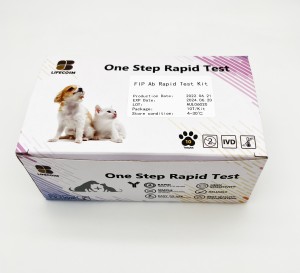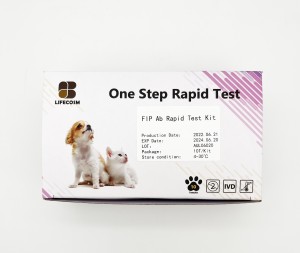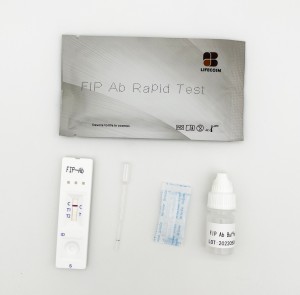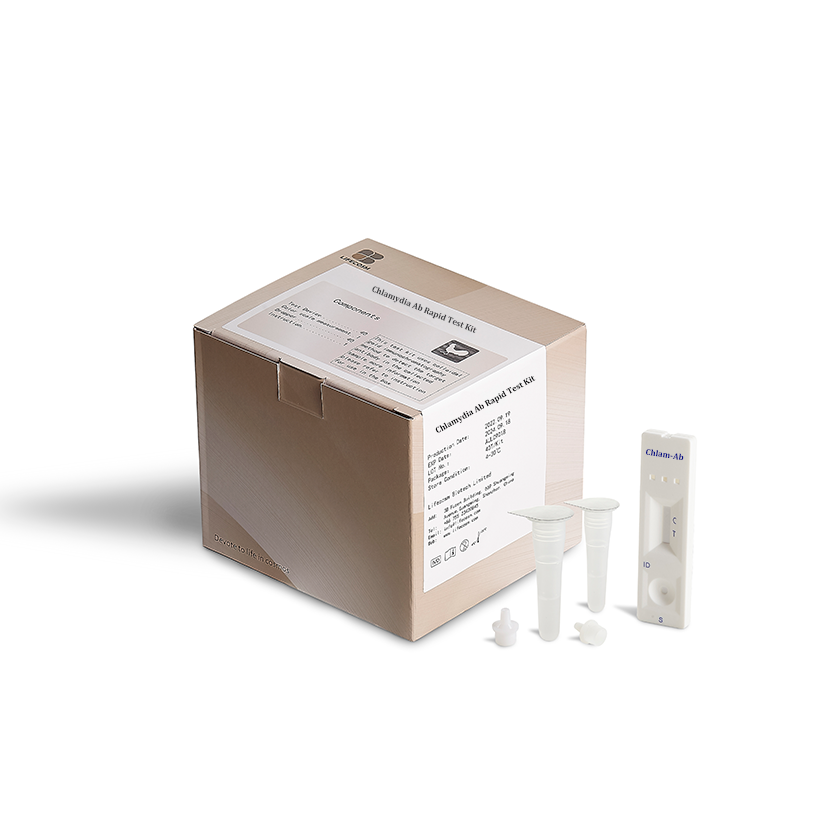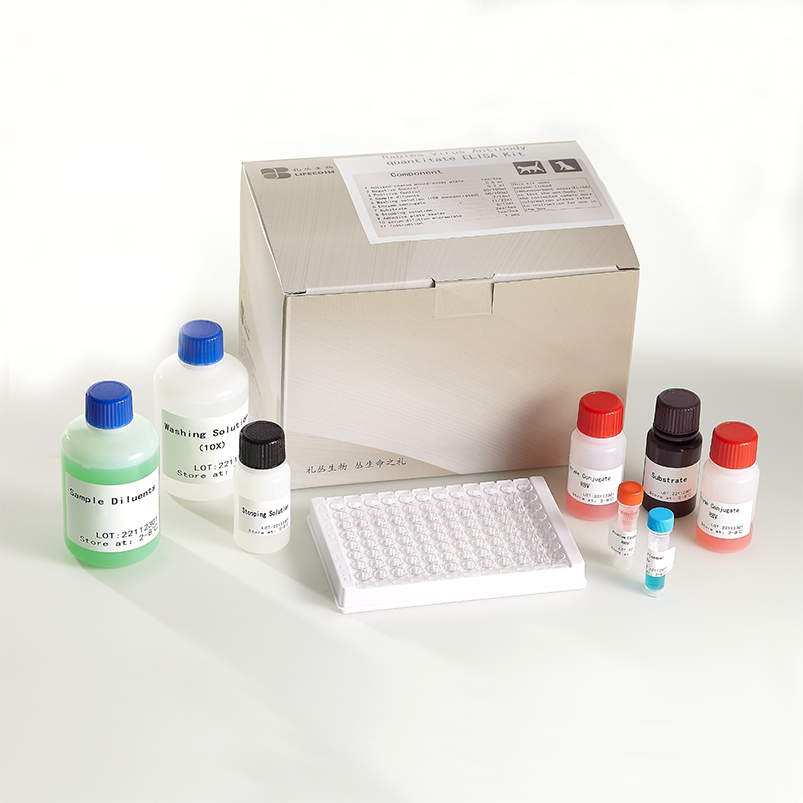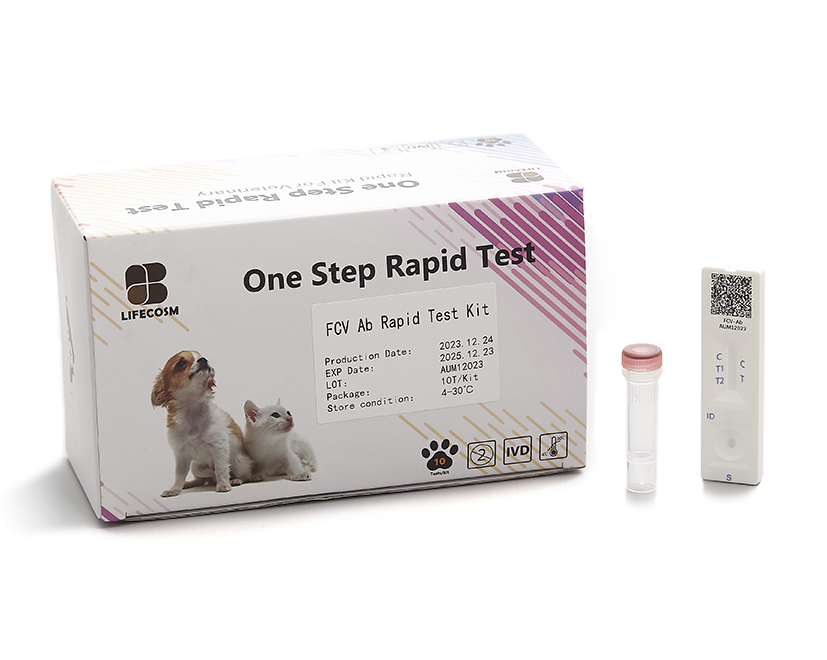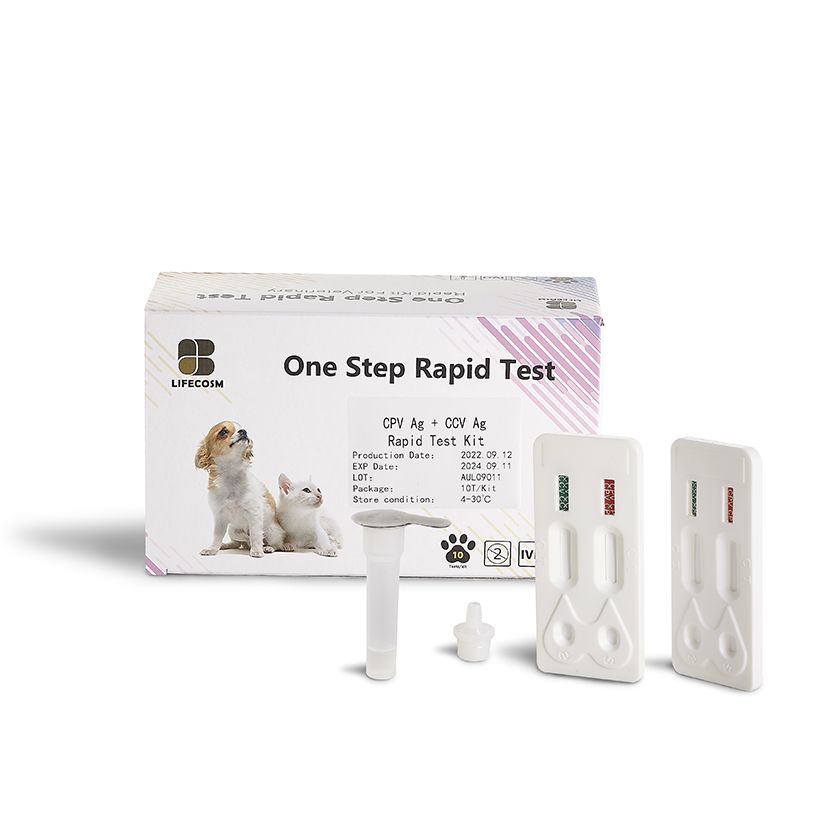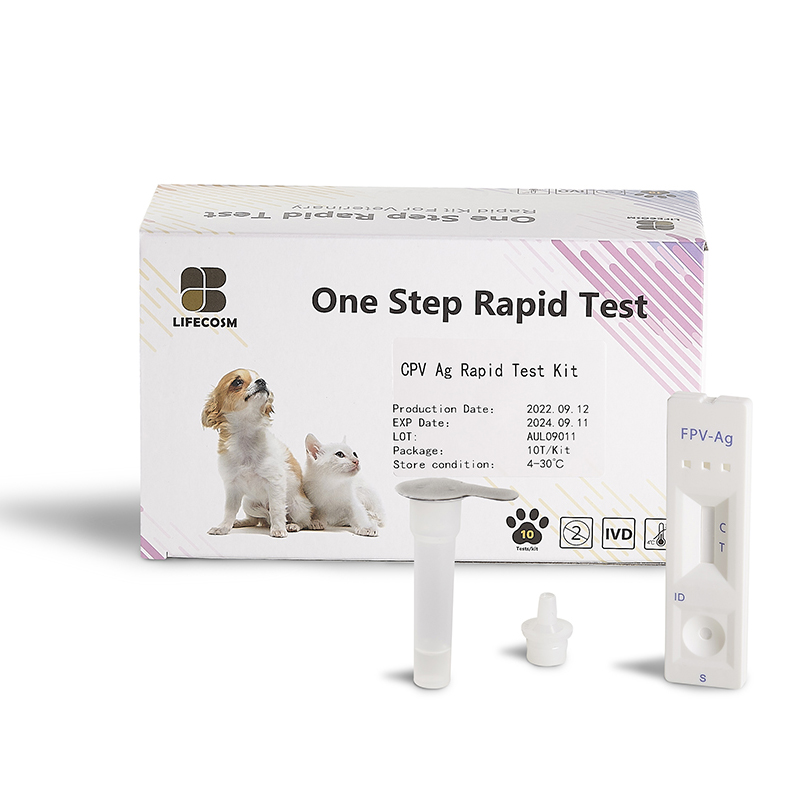
Products
Feline Infectious Peritonitis Ab Test Kit
| Summary | Detection of specific antibodies of Feline Infectious
Peritonitis Virus N protein within 10 minutes |
| Principle | One-step immunochromatographic assay |
| Detection Targets | Feline Coronavirus Antibodies |
| Sample | Feline Whole Blood, Plasma or Serum |
| Quantity | 1 box (kit) = 10 devices (Individual packing) |
|
Stability and Storage |
1) All reagents should be stored a Room Temperature (at 2 ~ 30℃) 2) 24 months after manufacturing.
|
Information
Feline infectious peritonitis (FIP) is a viral disease of cats caused by certain strains of a virus called the feline coronavirus. Most strains of feline coronavirus are avirulent, which means that they do not cause disease, and are referred to as feline enteric coronavirus. Cats infected with a feline coronavirus generally do not show any symptoms during the initial viral infection, and an immune response occurs with the development of antiviral antibodies. In a small percent of infected cats (5 ~ 10 %), either by a mutation of the virus or by an aberration of the immune response, the infection progresses into clinical FIP. With the assistance of the antibodies that are supposed to protect the cat, white blood cells are infected with virus, and these cells then transport the virus throughout the cat’s body. An intense inflammatory reaction occurs around vessels in the tissues where these infected cells locate, often in the abdomen, kidney, or brain. It is this interaction between the body’s own immune system and the virus that is responsible for the disease. Once a cat develops clinical FIP involving one or many systems of the cat’s body, the disease is progressive and is almost always fatal. The way clinical FIP develops as an immunemediated disease is unique, unlike any other viral disease of animals or humans.
Serotypes
The Feline Infectious Peritonitis Antigen Test Kit uses rapid immunochromatography technology, which is able to efficiently detect feline infectious peritonitis antigen in cat feces or vomit. The sample is diluted and dropped into the wells and moved along the chromatography membrane with colloidal gold-labeled anti-FIP monoclonal antibody. If the FIP antigen is present in the sample, it binds to the antibody on the test line and appears burgundy. If the FIP antigen is not present in the sample, no color reaction occurs.
Contents
| revolution canine |
| revolution pet med |
| detect test kit |
revolution pet


